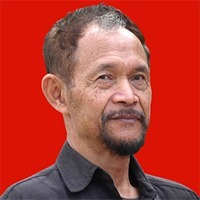Pestilence
Tuesday, March 10, 2020
arsip tempo : 171400434316.

No pathos. Emotions are minimal. The inhabitants of Oran enjoy ‘simple pleasures’; courting, flirting, going to the cinema, swimming in the sea. Young people can be enthusiastic, but only momentarily. The old people play boules, dine at the club, or gamble: their small sin…
Then, suddenly the plague breaks out—and in Albert Camus’ novel La Peste, translated into English as The Plague (and into Indonesian by Nh Dini
...
Subscribe to continue reading.
We craft news with stories.
 For the benefits of subscribing to Digital Tempo, See More
For the benefits of subscribing to Digital Tempo, See More








